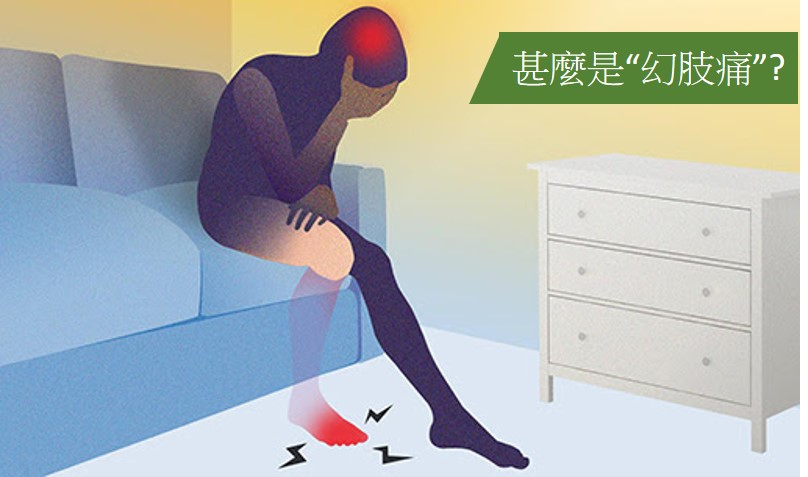Amputees sometimes experience unpleasant sensations such as pins and needles, cramping and pain in the amputated limb; even though the limb is not physically existing anymore. Amputees sometimes refuse to tell anyone about the symptoms, in the fear that they will be considered “insane”. This syndrome is called “phantom limb pain”.
After an amputation, a miscommunication in the brain where the neurons that had previously been communicating with the phantom limb still exist in the brain, and can still send out signal information, such as requesting the limb to move. When the signal is sent, the brain expects signals in return, for instance the feelings of movement or touch, to illustrate that the signal was carried out. However, because the limb does not exist anymore, brain signals never reach the muscles, and the limb cannot send sensory information back to the brain. The areas of the spinal cord and brain lose input from the phantom limb and therefore adjust to this information in unpredictable ways. This can result in activation in the body's sensing something is not right and get pain.
Studies also showed that after an amputation the brain may remap that part of the body's sensory circuitry to another part of the body. In other words, because the amputated area is no longer able to receive sensory information, the information is referred elsewhere, like from a missing foot to a still-exist knee.
